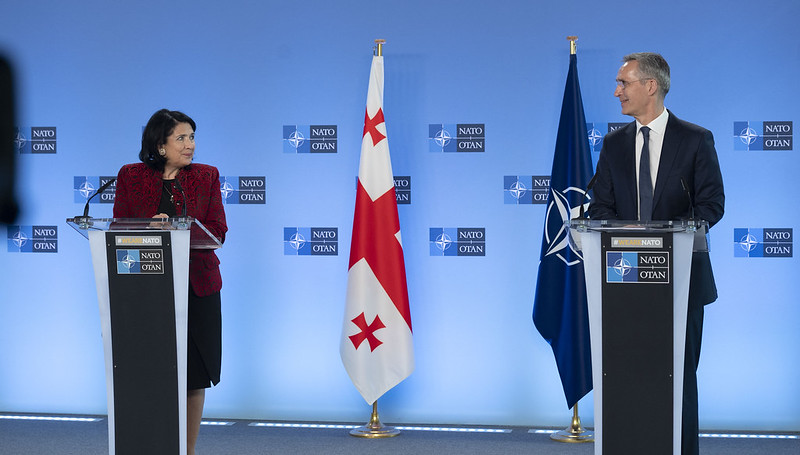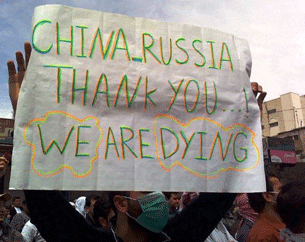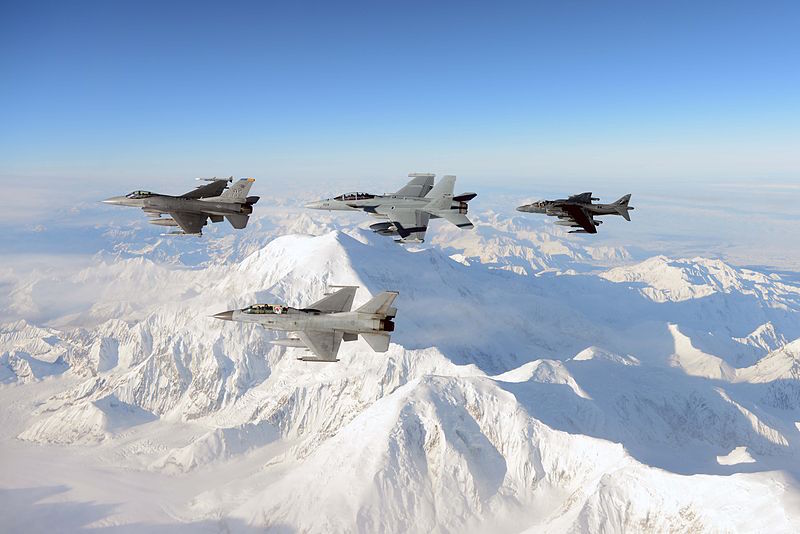“The jealous and intolerant eye of the Kremlin can distinguish, in the end, only vassals and enemies, and the neighbors of Russia, if they do not wish to be one, must reconcile themselves to being the other.”
Among the six countries that border the Black Sea, three are NATO members, two are close partners, and one is Russia. Georgia is one of NATO’s close partners and lies at the eastern tip of the sea directly between Russia and Turkey. Considering Russia’s distinct aversion to neighbouring countries joining or partnering with the alliance, Georgia’s relationship with NATO defies expectations. “We are much closer [to NATO] than anybody would have thought possible for a country located where we are, in the region where we are,” says Georgia’s President Salome Zourabichvili in a conversation with Stratfor. However, this close relationship with NATO has not been without its share of perils, best exemplified in the events of 2008.
With the election of President Saakashvilli in 2004, Georgia’s shift to the West intensified to the point where it was on the threshold of joining NATO. In June 2008, Russia warned Georgia against its accession to the alliance. In August of that year, conflict erupted between the two countries as President Saakashvilli took Russia’s bait and moved his forces north to the disputed South Ossetia region on the Russian border. Russia promptly conducted air strikes on Georgian targets, and used land and naval forces to push back Georgian troops. Over a five-day span, nearly 850 people were killed and the homes of 35,000 Georgians were destroyed as Russian troops overpowered Georgian forces. Eventually stopping its forces just short of Georgia’s capital of Tblisi, Russia used this opportunity to signal to NATO and the West that supporting former Soviet states within the Russian sphere of influence would not be tolerated.
Russia’s activity in this affair was not as costly as one would expect. Despite calls for peace from NATO countries and the West, Russia was allowed to run roughshod over Georgia, who was left to fend for itself. Of the many outcomes of the Russo-Georgian War of 2008, two stand out. First, the lack of consequences for this blatant power grab which emboldened Russia, providing a blueprint for its actions six years later when Russia annexed parts of Ukraine in 2014. Second, it illustrated the tension between soft and hard power. Though Georgia had been attacked specifically for its pro-Western stance and outlook, this conflict did nothing to discourage Georgia’s efforts to align itself with the West and break from Moscow. The soft power and draw of NATO and the West still pull Georgia today, much to the displeasure of the Russian bear lurking a three-hour drive from Tblisi.
Today, Georgia remains on the outside of NATO looking in. It aspires to join the alliance, and actively participates in NATO-led operations, most notably in Afghanistan. Georgia and NATO consistently work together to enhance interoperability via infrastructure projects like the Joint Training and Evaluation Centre, and the Defence Institution Building School. Georgia also frequently hosts exercises for NATO member forces, most recently in 2019 – with another planned for 2022.
Georgia’s lack of status as an official NATO member is not for lack of trying by successive Georgian administrations. Much like in the more often discussed case of Ukraine – another former Soviet state that wishes to join the alliance – it has been made clear by Russia that such an event would cross one of Vladimir Putin’s “red lines.” While Moscow is always one to react when a European country courts multilateralism, this would be especially true in the case of Georgia considering its location, and Russia’s fear of Western encirclement. As such, Georgia remains the site of a “frozen conflict.” While both NATO and Georgia have been poised for a long time to cement a binding relationship, Russia still holds the hard power in their threat of military force to indirectly veto Georgia’s accession to the alliance. There is also the problem of the current Russian occupation of Georgian territory, which in the event of Georgia joining the alliance would trigger Article 5 (NATO’s security guarantee) and force NATO members to declare war on Russia.
Since 2008, Russia occupies 20% of what the international community deems to be Georgian territory. When Russia sees its cultural influence on Georgia diminish even slightly, it imposes punitive embargoes or cuts energy supply. Considering the existential dangers posed to Georgia in seeking NATO membership, it is testament to the value of the guaranteed security, and soft power from the West that it continues to do so. And while the pull from the West is important in this regard, equally important is the push from Russia, as Putin’s increasingly belligerent attitude makes enemies out of neighbours, pushing Georgia to break associations with its former Soviet hegemon.
This conundrum could be partially solved by a creative solution to amend Article 6 of NATO’s governing treaty. Article 6 defines what territory is protected under NATO’s Article 5 – the section that lays out the concept of collective security, a cornerstone of NATO’s raison d’être. If Article 6 were amended to exclude the Georgian territory held by Russia since 2008, the regions of Abkhazia and Tskhinvali, then the path available to Georgia is clearer. The architects of this solution point out that Georgia will not use force to reclaim these regions, as such there is no need for them to be protected under NATO’s umbrella of collective security. Article 6 has been amended before for Turkey and Greece, and conceivably could be amended again for Georgia.
While this imaginative solution removes a barrier to Georgia’s accession to NATO, many remain. Russia is ready, willing, and capable to keep Georgia out of the alliance by force. Meanwhile, Russian efforts to promote sustainable cultural ties to Georgia’s population in order to discourage westward gazes have fallen on increasingly deaf ears. A 2020 poll from the National Democratic Institute shows that 74% of Georgians approve of the government’s goal of joining NATO. Georgians seem determined to be, while not an enemy to Russia, certainly not a vassal either.
Photo: The President of Georgia visits NATO (2021), by NATO North Atlantic Treaty Organization via Flickr. Licensed under CC BY-NC-ND 2.0.
Disclaimer: Any views or opinions expressed in articles are solely those of the authors and do not necessarily represent the views of the NATO Association of Canada.




